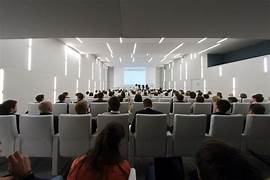In the ever-evolving landscape of healthcare, staying updated with the latest advancements, techniques, and research is not just a professional duty, but a moral imperative for medical professionals. One avenue that plays a crucial role in this continuous learning journey is attending seminars. These events offer a platform for networking, knowledge exchange, and skill development that are invaluable for professionals across all branches of medicine.
Why is it imperative for medical professionals to participate in seminars?
- Keeping Abreast of Advancements
With new discoveries, treatments and technologies emerging regularly, seminars provide a condensed and focused opportunity to gain experience about these advancements firsthand from experts in the field. Whether it’s breakthrough in treatments, diagnostic techniques, or medical devices, attending seminars ensures that medical professionals are equipped with the latest knowledge to deliver optimal patient care.
- Enhancing Clinical Skills
Beyond theoretical knowledge, seminars often include workshops, firsthand training sessions, and case studies that allow participants to hone their clinical skills. Whether it’s mastering a new surgical technique, learning to interpret advanced imaging studies, or refining communication skills with patients, these practical aspects of seminars directly contribute to professional growth and proficiency.
- Networking and Collaboration
Seminars bring together professionals from diverse backgrounds, specialties, and geographical locations. This environment fosters networking opportunities that can lead to collaborations on research projects, referrals or sharing best practices. The connections made at seminars can be invaluable, opening doors to new career opportunities and collaborative endeavours that can benefit.
- Exposure to Multidisciplinary Perspectives
Healthcare is inherently multidisciplinary, requiring collaboration among various specialties to provide comprehensive care. Seminars often feature speakers and attendees from different branches of medicine, offering insights and perspectives that may not be readily available within one’s specialty. Exposure to diverse viewpoints enriches professional knowledge and fosters a comprehensive approach to patient care.
- Continuing Education Requirements
Many professional medical bodies and licensing boards require healthcare professionals to earn a certain number of continuing education credits to maintain a license or certification. Seminars often offer accredited educational sessions that fulfil these requirements, making them a convenient and structured way to meet regulatory obligations while also advancing professional development.
- Fostering a Culture of Lifelong Learning
Medicine is not a static field, it’s a lifelong journey of learning and adaptation. By actively participating in seminars, medical professionals demonstrate a commitment to continuous improvement and excellence in patient care. Moreover, they serve as role models for aspiring healthcare professionals, inspiring a culture of lifelong learning within the medical community.
In conclusion, seminars play a pivotal role in the professional development and ongoing education of medical professionals. By attending these events, healthcare providers not only stay abreast of advancements in their field but also enhance their clinical skills, expand their professional networks, and contribute to a culture of lifelong learning. In an era of rapid medical progress and evolving patient needs, active participation in seminars is not just beneficial it’s essential for delivering high quality, patient centred care.
For a more rewarding future within the health sector contact us at drexpat.com
By Farzana Patel
26th April 2024


